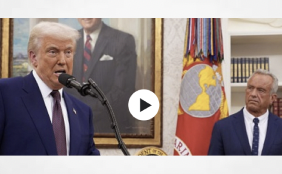Brazil’s agricultural research agency, Embrapa, known for transforming the country into a leading grains exporter, is preparing a 12-year research programme aimed at advancing cannabis cultivation in the farming sector.
Embrapa scientists, who have developed genetic varieties of grains, cotton, and vegetables suited to Brazil’s tropical climate, expect the health agency Anvisa to approve the cannabis research initiative this year.
“Can you imagine if we had already carried out the genetic improvement of this plant like we’ve done with cotton in the last 50 years?” said Daniela Bittencourt, a researcher with Embrapa’s cannabis workgroup.
The agency’s plans include establishing a cannabis seed bank, adapting strains to Brazilian soil and climate, and identifying potential regional production hubs across the country.
Bittencourt noted that about ten domestic and international companies have expressed interest in research partnerships with Embrapa, exploring applications in medicine, food, crop rotation, and carbon sequestration.
Since the 1970s, Embrapa’s initiatives have significantly boosted Brazil’s agricultural output, including a tenfold increase in soybean production, making the country the world’s largest soy producer.
A Brazilian court ruling in November legalised hemp cultivation for medicinal purposes, granting Anvisa until May to draft regulations. However, the agency has requested a six-month extension, with a court hearing scheduled for Wednesday to consider the request.
While recreational cannabis remains illegal in Brazil, countries like Uruguay and Canada have legalised its sale, fostering domestic cannabis industries.
The November ruling permits the cultivation of hemp, a cannabis variety with less than 0.3% THC, commonly grown for cannabidiol (CBD) extraction and industrial fibre production.
Kiara Cardoso, founder of DNA Soluções em Biotecnologia, which won the court case allowing hemp planting, anticipates large-scale production in Brazil for the paper, textile, and food industries. However, initial regulations may limit cultivation to small, indoor spaces meeting pharmaceutical-grade standards.
China, Brazil’s largest trading partner, leads the world in hemp production and exports, while countries such as France and Paraguay have also authorised cultivation for industrial and medicinal use.
Source: https://www.arise.tv/brazil-agriculture-agency-plans-long-term-research-into-cannabis-cultivation/

















